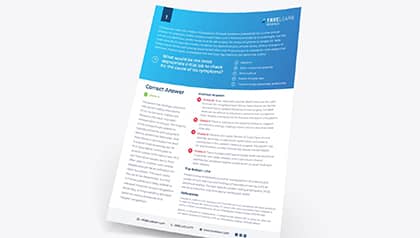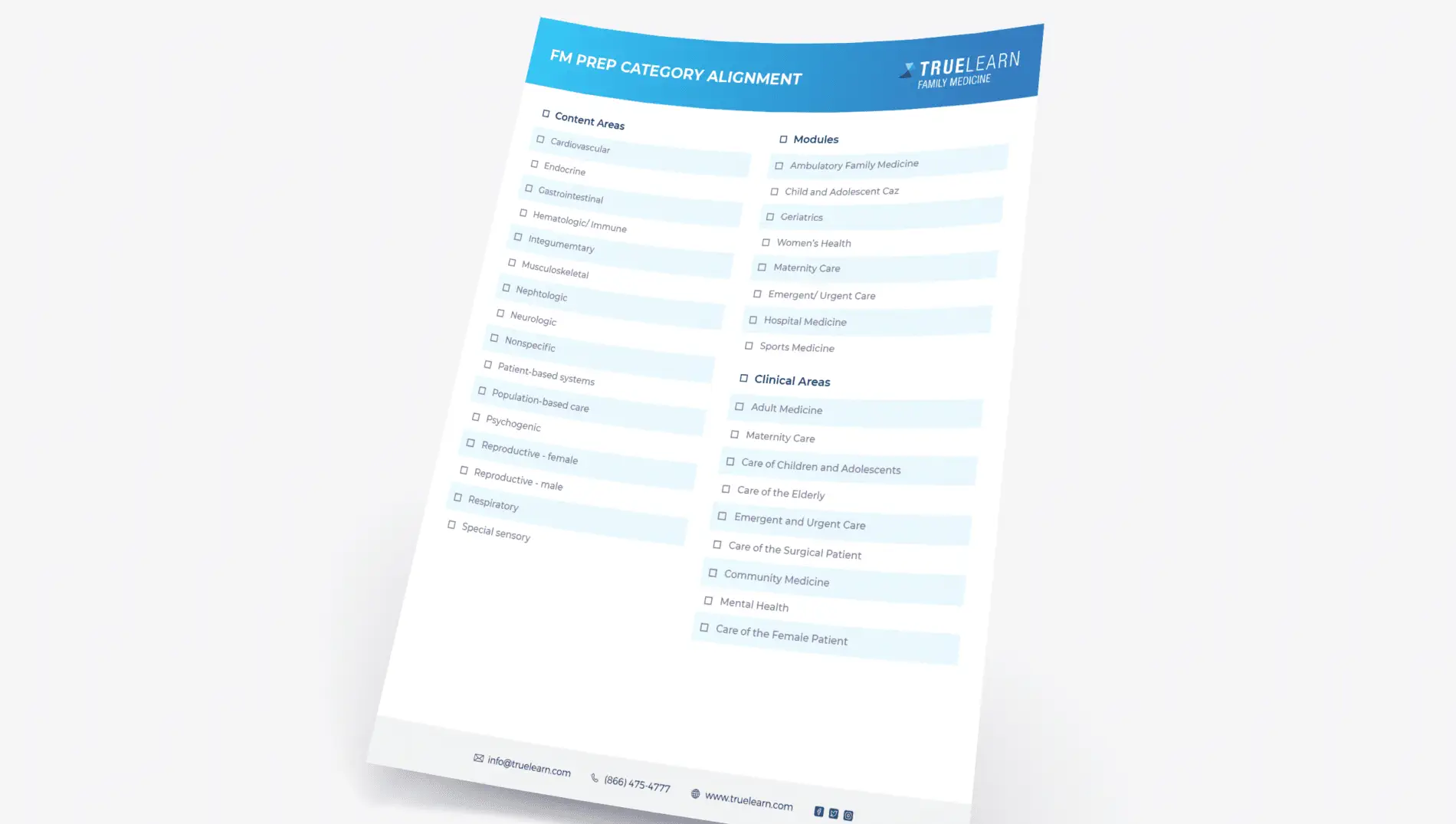CMA vs RMA vs CCMA Exams: Everything You Need to Know

You are a medical assistant (MA) or recent MA graduate, and you’re ready to take the next step to earn your medical assistant credentials. If this describes you, then you are ready to begin researching exams. This process may be overwhelming and only lead to more questions – What should you do? Where should you start? What is the difference between CMA vs RMA vs CCMA? Even more importantly, how do you prepare for these medical assistant certification tests and study for success?
There is value in earning the credentials of a Certified Medical Assistant (CMA, AAMA), Registered Medical Assistant (RMA, AMT), or Certified Clinical Medical Assistant (CCMA, NHA). Employers are more likely to hire certified medical assistants because these credentials demonstrate the knowledge and skills necessary to do the job. In some cases, employers may require certification or will pay certified medical assistants higher salaries. By understanding the available certification exams, you can decide which is your best option, and then focus on preparing for success.
We are going to explore three nationally accredited certification exams, breaking each down to identify features of the exam, eligibility requirements, content, and passing requirements.
CMA Certification Exam Overview
First, we will discuss the Certified Medical Assistant (AAMA) Certification Exam. Passing this exam earns the CMA (AAMA) credentials through the Certifying Board of the American Association of Medical Assistants (AAMA). The CMA (AAMA) exam is rigorous; however, eligibility requires that applicants are graduates of a CAAHEP- or ABHES-accredited medical assistant program, and this formal education helps to prepare test-takers. Here is some additional information about this exam:
Exam Eligibility
To be eligible to take the CMA exam, you must meet one of three eligibility categories.
- Category I – You are a completing student or recent graduate of a CAAHEP- or ABHES-accredited medical assisting program. If you are unsure if your program has CAAHEP or ABHES accreditation, you can check with your program director or school officials.
- Category 2 – You are a non-recent graduate of CAAHEP- or ABHES-accredited medical assisting program. If you apply for the exam more than 12 months after graduation, you are considered a non-recent graduate. If you are unsure if your program has CAAHEP or ABHES accreditation, you can check with your program director or school officials.
- Category 3 – You have previously passed the CMA (AAMA) Certification Exam and you want to apply to recertify the CMA (AAMA) credential by testing rather than completing continuing education units (CEUs).
Content and Structure
The CMA (AAMA) Certification Exam requires a thorough, broad, and current understanding of health care delivery. The following provides an overview of the content and structure of the CMA (AAMA) exam:
- There are 200 multiple-choice questions administered in four 40-minute segments with breaks in between. Of the 200 questions, 180 are used for exam scoring. The remaining 20 questions are “pretest” questions randomly placed throughout the exam.
- There are three categories of questions.
- Clinical Competency – consists of 106 questions and is 58% of the exam.
- General – consists of 38 questions and is 21% of the exam.
- Administrative – consists of 36 questions and is 20% of the exam.
- You need a minimum score of 425 (out of 800) to pass. The questions are scored according to difficulty level. You must also pass each category individually.
RMA Certification Exam Overview
Now, we will discuss the Registered Medical Assistant (AMT) Certification Exam. Passing this exam earns the RMA (AMT) credentials through the American Medical Technologists (AMT). The RMA (AMT) exam assesses the knowledge and skills of a medical assistant and allows for a variety of eligibility routes. Here is some additional information about this exam:
Exam Eligibility
To be eligible to take the RMA exam, you must meet one of four eligibility routes.
- Route 1 (Education) – You are a completing student or recent graduate of an accredited medical assistant program that provides at least 720 clock hours of instruction and 160 clock hours of externship. If you are unsure if your program meets accreditation eligibility, you can check with your program director or school officials. If you graduated more than four years ago, you must also apply Route 3 (Work Experience).
- Route 2 (Military) – You are a completing student or recent graduate of a formal medical services training program offered by the United States Armed Forces. This program should provide at least 720 clock hours of instruction and 160 clock hours of externship. If you graduated from this program more than four years ago, you must also apply Route 3 (Work Experience).
- Route 3 (Work Experience) – You have been employed as a full-time medical assistant for a minimum of five out of the last seven years. You must show proof of CPR certification (by the American Heart Association or American Red Cross), work experience with both clinical and administrative duties, and high school graduation (or equivalent).
- Route 4 (Instructor) – You are currently an instructor in an accredited medical assisting program, and you have completed a course of instruction in a healthcare discipline related to medical assisting. Additionally, you have a minimum of five years of teaching experience in a medical assisting discipline with a range of both clinical and administrative competencies that broadly represents core medical assistant duties.
Content and Structure
The RMA (AMT) Certification Exam is intended to evaluate the competence of entry-level medical assistants. The following provides an overview of the content and structure of the RMA (AMT) exam:
- There are 210 multiple-choice questions administered over a period of 2 hours.
- There are three categories of questions.
- General Medical Assisting Knowledge – consists of about 86 questions and is approximately 41% of the exam.
- Administrative Medical Assisting – consists of about 50 questions and is approximately 24% of the exam.
- Administrative – consists of about 74 questions and is approximately 35% of the exam.
- You need to get a minimum 70% of the questions (147 questions) correct to pass the exam.
CCMA Certification Exam Overview
Finally, we will discuss the Certified Clinical Medical Assistant (NHA) Certification Exam. Passing this exam earns the CCMA (NHA) credentials through the National Healthcareer Association (NHA). The CCMA (NHA) exam is an industry certification developed to measure a student’s knowledge and skills as a medical assistant. Here is some additional information about this exam:
Exam Eligibility
To be eligible to take the CCMA exam, you must demonstrate the following:
- You must possess a high school diploma or the equivalent.
- You must have successfully completed a medical assistant training program or at least one year of work experience as a medical assistant.
Content and Structure
The CCMA (NHA) Certification Exam evaluates the competence of medical assistants in administrative and clinical content areas. The following provides an overview of the content and structure of the CCMA (NHA) exam:
- There are 150 scored multiple-choice questions and 30 unscored pretest questions administered over a period of 3 hours.
- There are seven domains of questions:
- Foundational Knowledge and Basic Science – consists of 15 questions and is 10% of the exam.
- Anatomy and Physiology – consists of 12 questions and is 8% of the exam.
- Clinical Patient Care – consists of 81 questions and is 54% of the exam.
- Patient Care Coordination and Education – consists of 7-8 questions and is 5% of the exam.
- Administrative Assisting – consists of 19-20 questions and is 13% of the exam.
- Communication and Customer Service – consists of 7-8 questions and is 5% of the exam.
- Medical Law and Ethics – consists of 7-8 questions and is 5% of the exam.
- You need a minimum scaled score of 390 (out of 500) to pass. The questions are scaled according to difficulty level.
You now know more about the eligibility and content of these three medical assistant credentialing exams. This will help you to make an informed decision about which one will best suit your needs so you can submit your application and pay the exam fee. Once your application is approved, it is time to select an exam date and prepare for the exam! Here are some top tips for preparing for the big day:
Preparing for Exam Day
Regardless of whether you are taking CMA, RMA or CCMA exams, the following tips apply and can help set you up properly for exam day.
Tip 1: Schedule strategically.
Although you are excited to take your exam and move on to the next stage of your career, it is important that you consider the timing of your credentialing exam. Be sure to select a date that is not too far in the future that you will likely procrastinate preparing, but is not so soon that you do not have time to prepare. Ideally, allow at least a month or two so you can adequately prepare.
Tip 2: Plan ahead!
You have set your exam date, and now you should focus on preparing a study plan. You’ll want to be sure that you take some time to organize your study materials and develop a schedule. Consider your day-to-day obligations. When is the best time for you to set aside for exam preparation? Break your schedule down by weeks, and be realistic when you schedule time. Is anything likely to interfere with that time? Avoid overbooking yourself. Plan to spend at least 2 hours a session for 3-4 sessions a week to maximize retention of the study material.
Tip 3: Break your schedule down by topic.
By assigning topics to your study sessions, you will be able to focus better. This also provides you with an idea of how long you should plan to prepare before your exam. Use exam content outlines to organize your exam topics.
Tip 4: Stick to your schedule!
Once you have developed weekly schedules with dedicated times for studying and exam preparation, it will be important to adhere to that schedule. Avoid distractions that can sabotage your ability to prepare by controlling your environment. Are you comfortable where you are working? Are others around to distract you? Do you have everything you need? Treat your study time as though you are in a class to discourage disturbances.
Tip 5: Analyze your strengths and weaknesses.
Use practice exams and study materials, such as flashcards, to determine your personal areas of strength and weakness. Apply this information to determine how long you will need to prepare for each topic. You will want to continue reviewing topics of strength to retain the information, but you should also dedicate more time and effort to improve your areas of weakness.
Tip 6: Complete timed practice questions and practice tests to prepare.
The medical assistant credentialing exams are proctored, computer-based, and timed tests. Some test-takers struggle with test anxiety associated with timed tests, or they may not be familiar with computerized test-taking. Practicing these skills will help reduce that anxiety by making this type of testing more comfortable and familiar. Additionally, practice exams will help you continually assess your knowledge and your areas of strength and weakness while familiarizing you with the types of questions you can expect to see on the credentialing exam.
Apply these tips to your study habits, and you will gain confidence and improve your knowledge. Before you know it, it will be time to take your exam and earn your medical assistant certification. You’ve got this!

